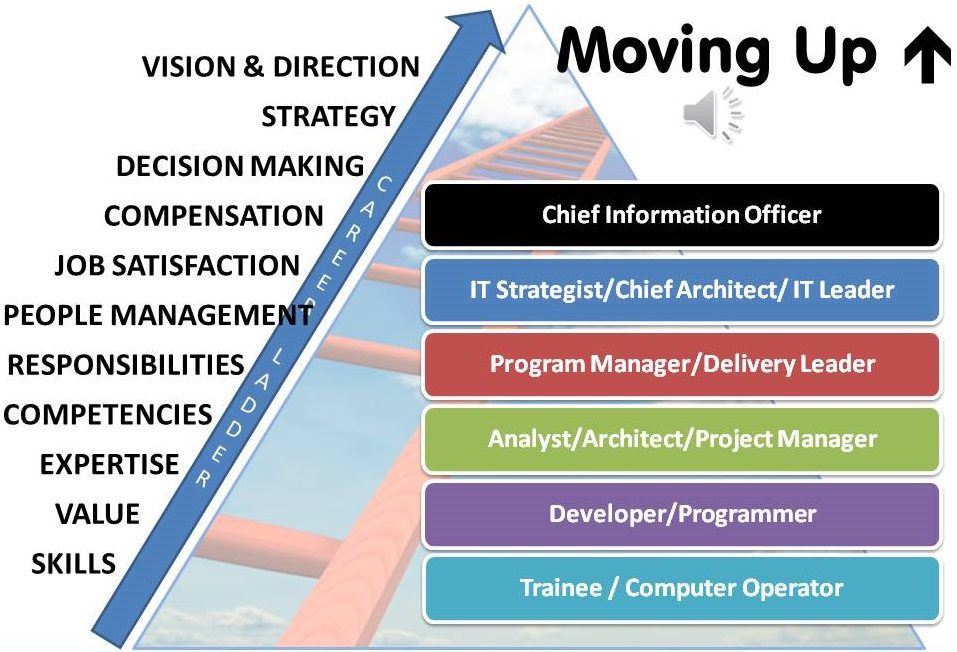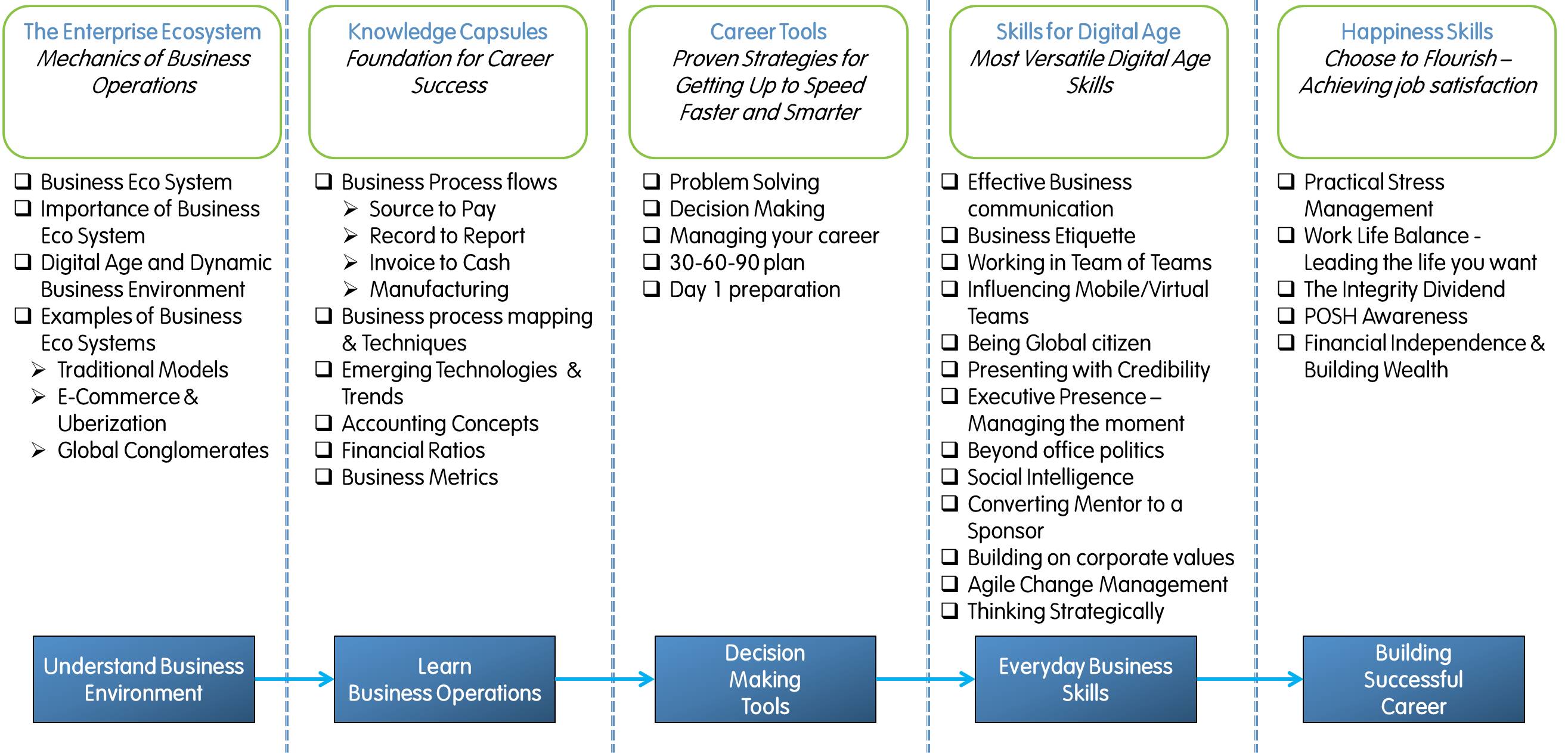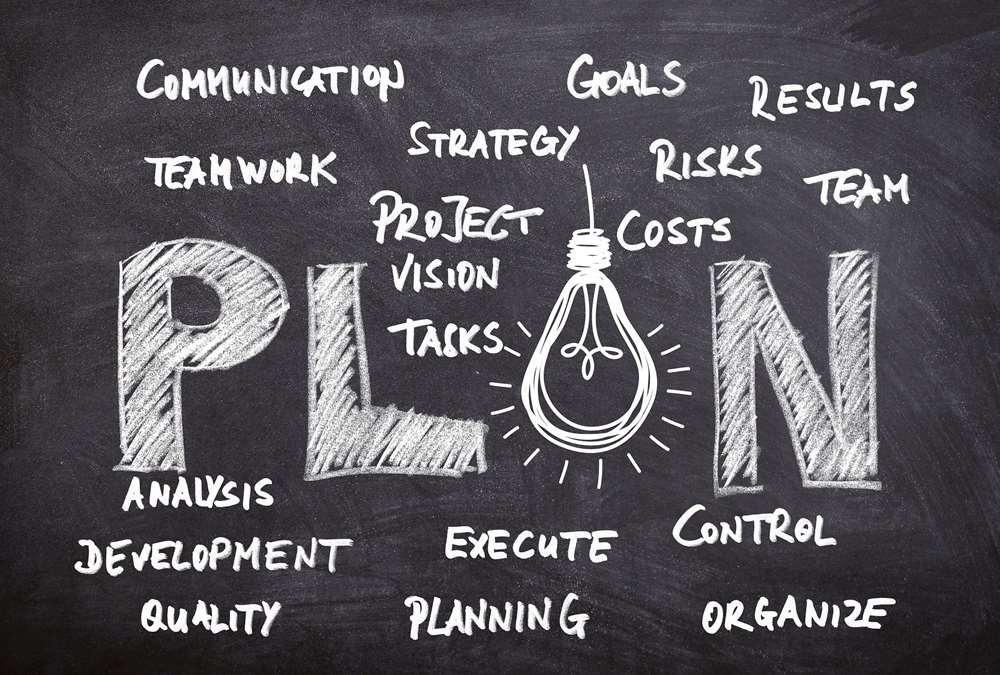- Home
- Business Processes
- Industry Knowledge
- Aerospace Industry
- Automotive Industry
- Banking Domain
- BFSI Industry
- Consumer/ FMCG Industry
- Chemicals Industry
- Engineering & Construction
- Energy Industry
- Education Domain
- Finance Domain
- Hospitality Domain
- Healthcare Industry
- Insurance Domain
- Retail Industry
- Travel and Tourism Domain
- Telecom Industry
- Leadership Skills
- eLearning
- Home
- Leadership
- Career Management
- Tips for Career Progression
Tips for Career Progression
Navigating your career journey will hopefully include a series of experiences that challenge your skills and abilities in ways that are satisfying and rewarding. Only you can manage your career. That means you must determine what things you are passionate about, what your goals are, both professionally and personally, and how much energy you are willing to invest along the way. Learn how to build an effective career path framework for yourself.
This article will guide you through a process that will assist you in learning more about yourself and your career. You will think about your personal work history, your unique talents and passions, and consider a path that corresponds with your opportunities for growth and advancements.
The Bar is rising
Why it takes time for a professional to move from lower to higher roles. What is it that is changing as you are growing in the ladder? As you start maturing into senior leadership roles you improve on your technical skills both in depth and breath. Given below are some of the expectations that change as you move up the ladder:
- You start adding more value and bring more expertise on table.
- You gain more competencies that drive you towards acquiring leadership and management traits.
- Your responsibilities continue to grow and your leaders expect more and more from you.
- You start managing others and need to learn people management skills
- As you grow higher you job satisfaction levels increase.
- Your compensation also continues to grow and you will be surprised that it does not really matter the way it used to be.
- You are expected to take decisions and bear the responsibility of their success and failure. You are expected to evaluate risks and opportunities.
- You become strategic at the top of the pyramid and now people look at you for their answers.
- You need to provide thought leadership and set directions, goals and objectives for your department
- You need to set the vision and direction for your organization.
- You motivate and people follow and execute your dreams.
How do you achieve this transition smoothly? How do you ensure you have the necessary skills when you are making career jumps? You can do by doing career planning and having a career progression framework with you.
Developing a Career Path Framework
Ever wondered if your current career path is the right one? There can be a big discrepancy between the career you thought was a good fit for you and the career that is actually right for you. So, how do you tell what you should be doing?
Career development planning and building career-path frameworks can sound boring but at an individual level, you should work to define a career path framework for yourself. The career progression framework will be used to define the possible roles and titles that you want to move into as you build your career and shows possible roles and competencies needed for those roles. Start putting together a framework by answering the following questions:
Who Am I?
- What do you enjoy most about your work?
- What would you like to do more or less of in your current job?
- What are your personal work/life priorities?
Where Am I?
- What are you known for in your current organization – what is your personal brand?
- Is the culture and climate of your existing organization a good fit?

What’s Coming/Changing?
- What trends in your industry, function or domain will impact your career choices in the future?
- Are there major changes in your personal life that will impact your career decisions?
- How do you think changes in technology will affect your role in the next several years?
Where are You Going?
- What new skills and competencies would you like to develop?
- What are your long term career aspirations?
- Where do you see yourself in 2, 5 & 10 years?
What are the Expectations?
- What kinds of role expectations might there be for the role you are considering?
- What do you think you need to do to be ready for your next job?
- Is your current image requires any modification to help you achieve your career goals?
How am I Going to Get There?
- What kind of experience or job profiles will you need in your resume to achieve your goal?
- Who else will you network with for feedback and input on your plan, who are your sponsors?
By doing an honest evaluation of your skills, strengths, and weaknesses you will gain clarity on actions you need to take to meet your career aspirations. Most people don’t know what they’re good at. The questionnaire above can help you gain a neutral perspective about your strengths and weaknesses and help you realize your talents.

Explore Technofunc Toolkit for Technical Leadership
Technofunc resources aim at bridging the gap between technical and functional expertise and have invested a lot of effort into creating tutorials on various business processes and industry knowledge. Our curriculum is designed to equip a person to leverage technology as well as learn critical business application processes along-with system integrity and security, systems audit, project management, and other key methods widely used today that helps in the integration of business processes and practices in tune with the requirements that are driven both by business, globalization and legislature. We help you gain expertise in both technical and functional skills, which when applied collectively comprise of professional competence and excellence.
Given below are the different technofunc resources to start building your technical leadership skills:
Build Domain Skills
- Aerospace Domain
- Automotive Domain
- Banking Domain
- BFSI Domain
- Consumer / FMCG Domain
- Chemicals Domain
- Engineering and Construction Domain
- Energy Domain
- Education Domain
- Financial Management & Business Dynamics
- Global Markets Domain
- Hospitality and Leisure Domain
- Healthcare Domain
- Insurance Domain
- Technology Domain
- Retail Domain
- Travel Domain
- Telecom Domain
“The difference between great people and everyone else is that great people create their lives actively, while everyone else is created by their lives, passively waiting to see where life takes them next. The difference between the two is the difference between living fully and just existing.”
- Michael E. Gerber
Related Links
You May Also Like
-
Team Development by Building Trust
As your team begins to work together, you need to establish a way each team member can exchange ideas and build mutual trust. Successful groups are built on trust and collaboration. A free exchange of ideas, in an open environment, will allow your team to get to know each other and enable you to check on how they work together. Learn some tips to help build team trust and establish personal bonds.
-
Time management is the process of planning and exercising conscious control of time spent on specific activities, especially to increase effectiveness, efficiency, and productivity. The best time management techniques improve the ways you work. Time management refers to managing time effectively so that the right time is allocated to the right activity. Learn more about the five steps for effective time management viz. study, identify, analyze, decide, and implement.
-
A manager or an employee in an organization who is experiencing a high level of stress may develop high blood pressure, ulcers, irritability, difficulty in making routine decisions, loss of appetite, accident proneness, and the like. These can be subsumed under three general categories, physiological, psychological, and behavioral symptoms. Stress can give rise to a number of changes.
-
A good leadership style is something that every effective leader must have in order to succeed, but identifying what that entails or does not entails might be difficult to understand. Most of the research on leadership focuses on the exemplary, best practices, and positive attributes of effective and successful leaders. This article talks about a new approach to learn leadership using lessons from bad leadership. That is the lessons to be learned by examining leaders who have not effectively exercised their power, authority, or influence.
-
“Level 5 Leadership”, this term was coined by Jim Collins in his book “Good to Great” and it is all about achieving "Greatness" as a leader. This article will explain what we mean by Level 5 Leadership and what the characteristics of a Level 5 leader are. What it takes to achieve greatness as a leader, and what are the steps and strategies that one can use to move up to this top level of leadership.
-
What are some of the smartest things you can do in your early career that can help you become successful? The more you challenge yourself early on and gain a multitude of experiences and skills, the more successful you'll become down the road. In this article, we have compiled our best career advice including tips from career and recruitment experts. Here are some important tips to keep in mind as you plan your education and training, your career, and your life.
-
Importance of Technical Skills
Today’s business environment is complex and changing at a fast pace. Tough business problems require technical expertise to create cost-effective & sustainable solutions. All industries need some kind of technical skills to accomplish complex actions, tasks, and processes relating to computational and physical technology as well as a diverse group of other enterprises. The acquisition of advanced technical skills requires specific education certification or training, often with practical hands-on learning.
-
Emergent leadership occurs when a group member is not appointed or elected as leader, but rather that person steps up as the leader over time within-group interactions. Have you ever faced challenges in getting accepted into your new role of position as a leader? Groups don't automatically accept a new "boss" as a leader. Emergent leadership is what you must do when taking over a new group. Learn more about emergent leadership.
-
Discover Your Career Direction
The process of finding career direction begins with specific career exploration and identification of a career that could be passionate about, a career that allows you to make the optimum use of your talents. After identification of the career, you need to acquire skills and tools, and education that can help you get entry into your dream career. Learn the important tips that you cannot afford to miss.
-
Develop your Leadership Skills
There are a number of broad skill areas that are particularly important for leaders. Today's demanding global business landscape is defined by relentless change and rising business complexity, bringing new challenges. Leadership skills provide career-enhancing resources and support you to be exceptionally successful in your career. Leaders need to provide direction to their teams and need to be able to make good and timely decisions to define and support strategic direction for the enterprise.
Explore Our Free Training Articles or
Sign Up to Start With Our eLearning Courses

About Us
Learning
© 2023 TechnoFunc, All Rights Reserved










